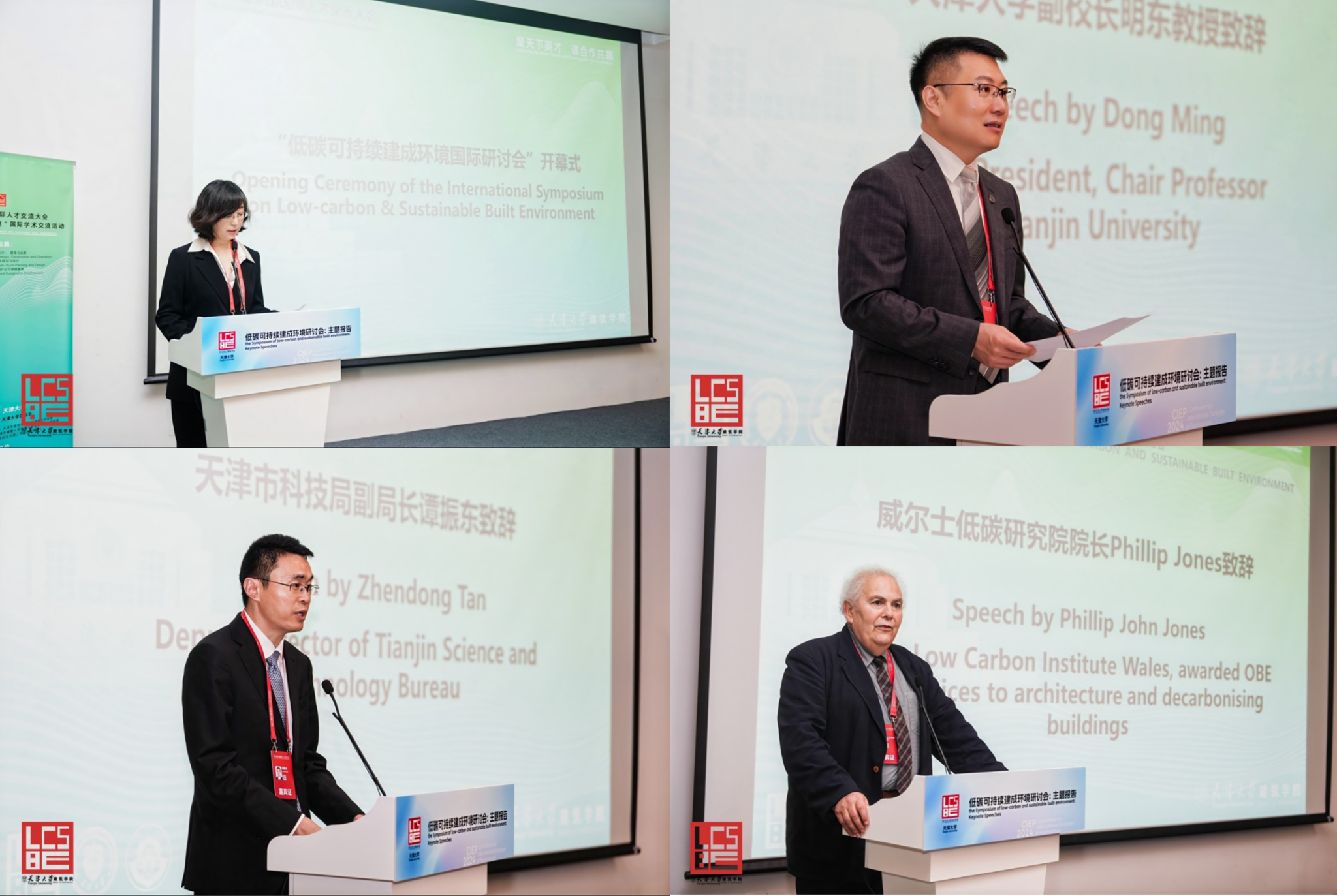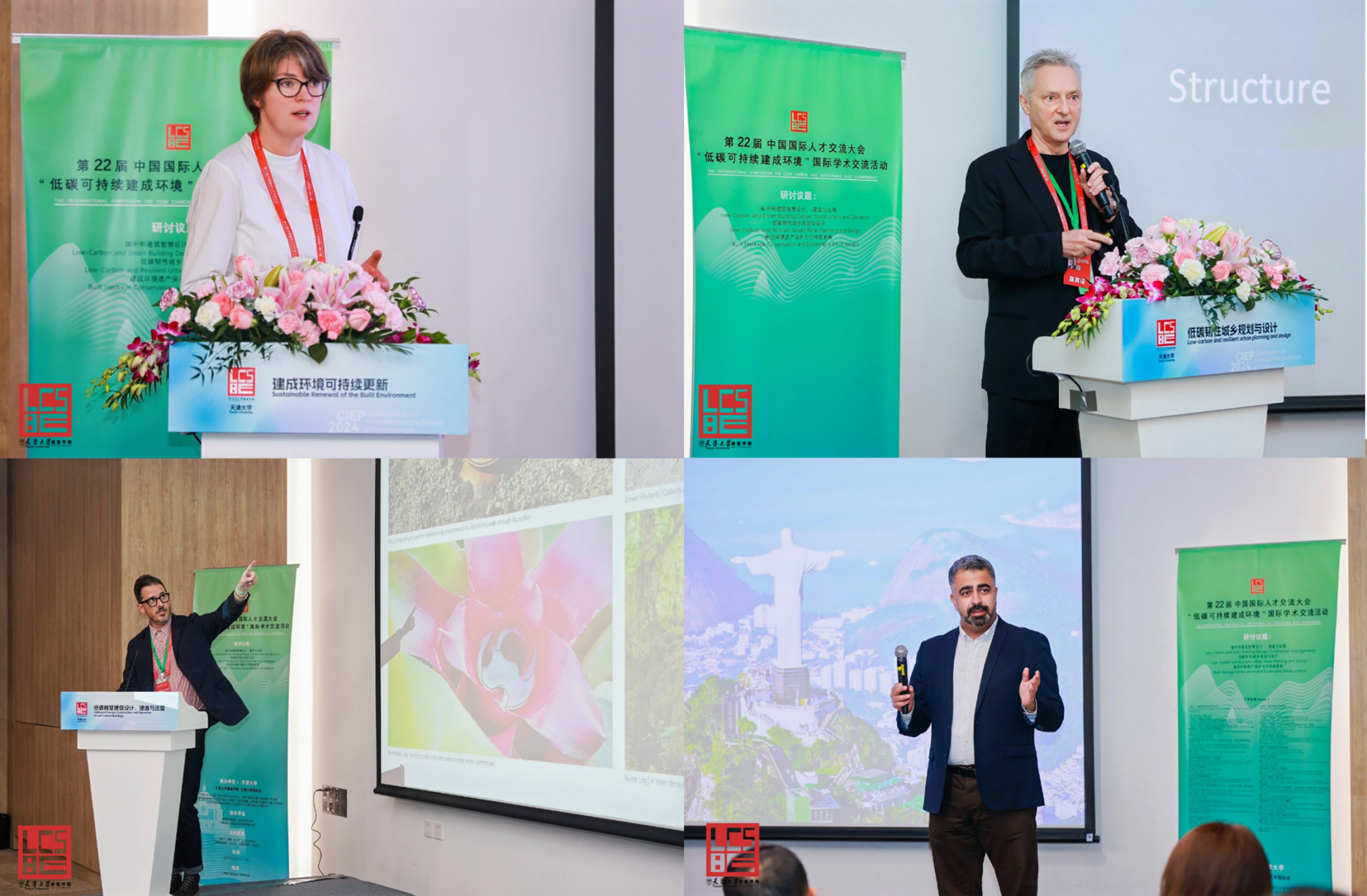The international symposium on "Low-Carbon Sustainable Built Environment" was hosted by Tianjin University (TJU) at the Zhangjiang Science Hall in Shanghai from Nov 2 to 3, 2024. The event was part of the 22nd Conference on International Exchange of Professionals.
The opening ceremony of the symposium was chaired by Yang Wei, Vice Dean of the School of Architecture, TJU. The ceremony featured remarks from Ming Dong, Vice President of TJU, Tan Zhendong, Deputy Director of the Tianjin Municipal Science and Technology Bureau, Phillip Jones, Emeritus Professor Welsh School of Architecture, Cardiff University and OBE recipient, Kong Yuhang, Chair Professor at the School of Architecture, TJU, Wang Xingtian, Chairman of the TJU Shanghai Alumni Association, Zhang Chunyan, Party Committee Secretary, Vice Dean of the School of Architecture at TJU, and Zhang Ling, Director of the Office of International Cooperation, TJU.

Yang Wei, Vice Dean of the School of Architecture at TJU, chairs the opening ceremony, during which representatives deliver their addresses.

Representatives address the opening ceremony.
One highlight of the event was the keynote session, featuring key figures including Pritzker laureate Shigeru Ban, French architect Elizabeth de Portzamparc, Fellow of the Royal Academy of Engineering Kang Jian, and Academician of the Chinese Academy of Engineering Li Xinggang.

Scholars and experts give their keynote speeches.
Another highlight of the symposium was the parallel sessions, which provided a platform for high-level discussions with over 30 experts, such as Juliet Davis, Dean of the school of Architecture, Cardiff University, Chris Webster, Distinguished Professor at the University of Hong Kong, Marc Swackhamer, Dean of the College of Architecture and Planning, University of Colorado Denver and Ali Cheshmehzangi, Dean of the School of Architecture, University of Queensland.

Scholars and experts give their lectures.
The symposium fostered long-term collaboration agreements and was a major step forward in promoting sustainable development in the built environment.
